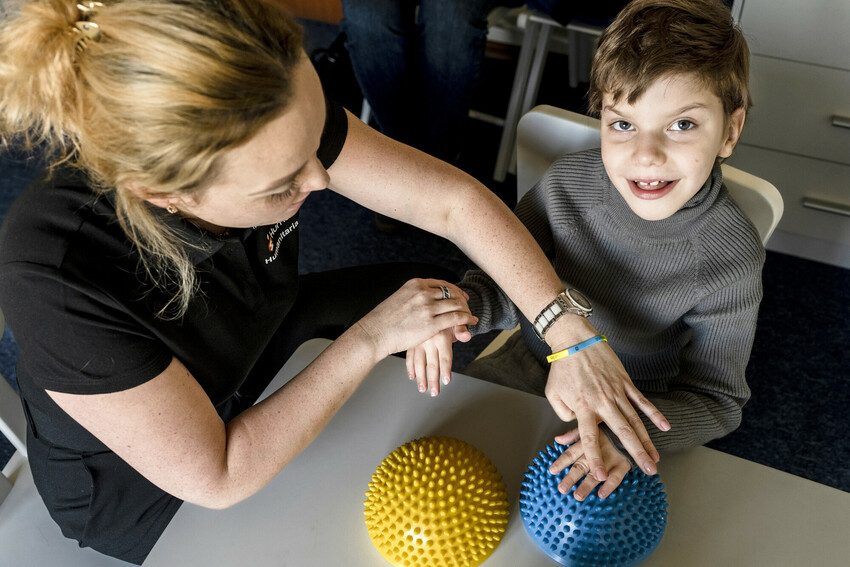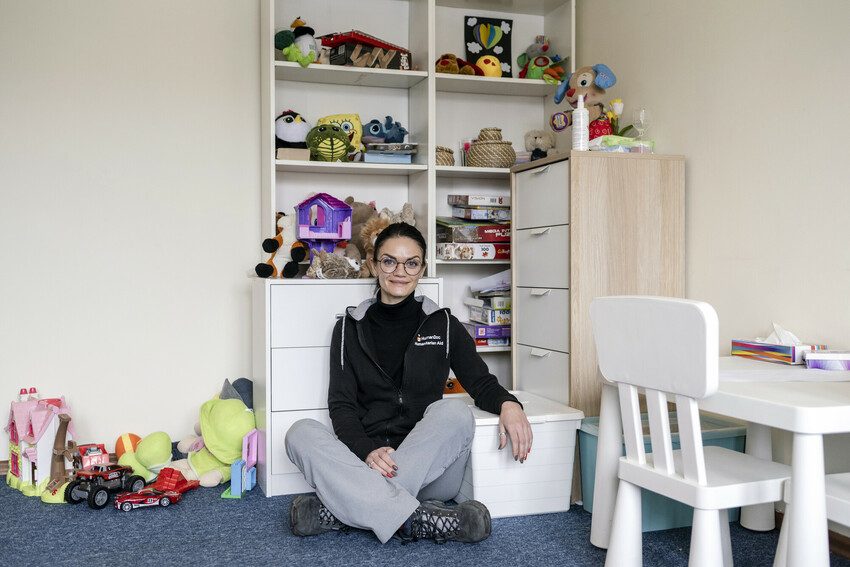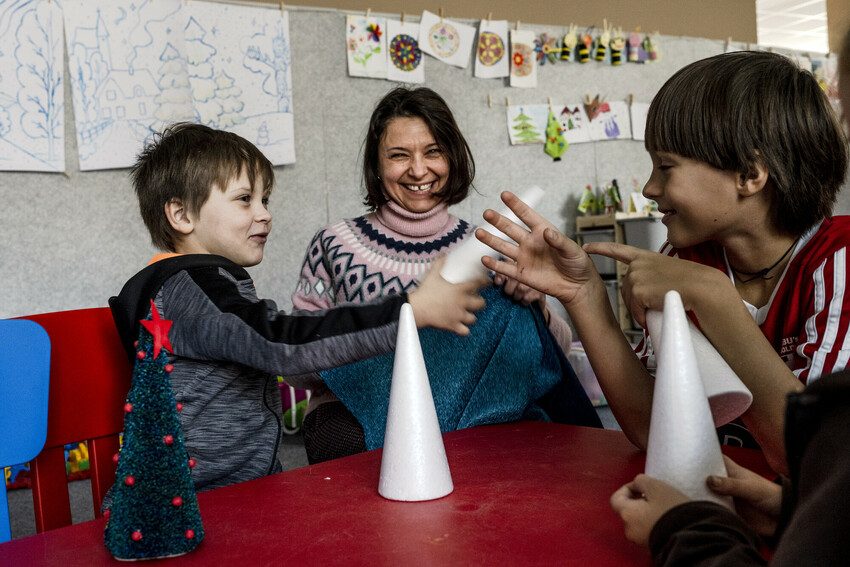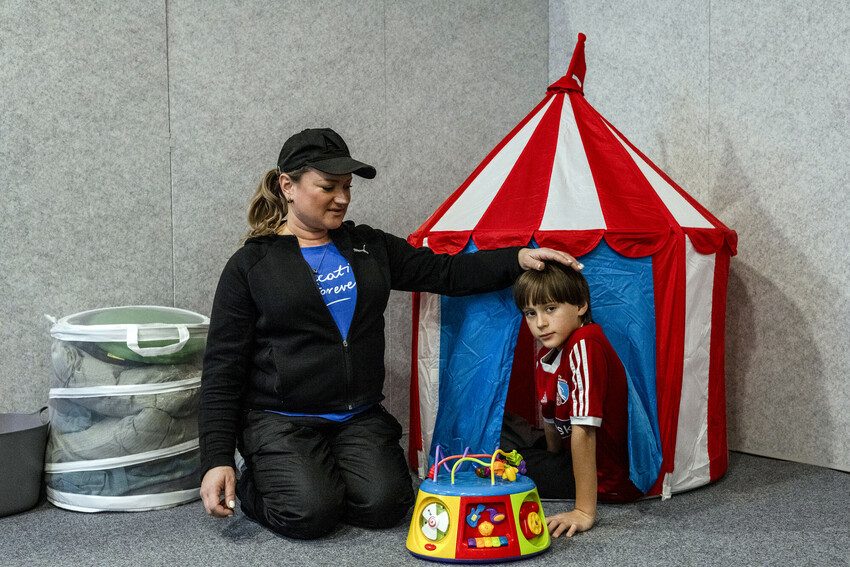Children and mothers from Ukraine make the most of new opportunities
Having fled Ukraine due to the war, mothers at a refugee camp in Poland share their experiences of living in a different country, looking after their children, learning new vocational skills and finding work.
The refugee integration centre in Warsaw is a bustling place, full of toys and people chatting in Ukrainian.
Natalia visits the centre regularly. An English teacher and translator from southeastern Ukraine, she fled with her mother and children after their hometown came under Russian control. Her 5-year-old son Pavel has special needs.
“Pavel only started speaking when he was 4,” explains Natalia. “He was working with a speech therapist in Ukraine, but all that stopped when the war began. Normal life just disappeared.

“The evacuation was traumatising for Pavel, as it is for most special-needs children,” says Natalia. Many children with autism and learning difficulties have faced additional challenges overcoming their experiences of the war.
At the integration centre, Pavel has been able to re-start his speech therapy. “It’s an 11-session programme,” said Natalia. “He’s only had 1 session so far, but I’ve already noticed a lot of progress.”
The centre for refugees in Warsaw is one of several in Poland set up by the HumanDoc Foundation with support from Plan International.
Specialists trained in post-traumatic stress disorder provide therapy for children and adults. Most of the therapists are Ukrainian, making it easier for them to communicate with the mothers and children at the centre. “We take each case one by one for diagnosis,” says Inna Kokhanova, a case manager at the centre and one of the estimated 1.4 million Ukrainian refugees who have registered in Poland since the escalation of the war.
“We have about 200 people a month coming here,” says Inna. “The centre is a safe space offering integration and support services for refugee children and their families.”
The team also offers a wide range of assistance for refugees, from legal advice and clubs for senior citizens, to Polish lessons and psychological counselling.

Skills training creates new opportunities
Daryna, a former HR specialist, left Ukraine with her mother Iryna when the war escalated. In Łódź, Daryna and Iryna now work at one of the nine day care centres being supported by Plan International. The centres provide care and educational support for Ukrainian and Polish children throughout the country.

At the centre, Daryna and Iryna have retrained to teach in Polish kindergartens after joining a course offered by Plan International’s local partner to re-qualify Ukrainian refugees.
“The programme was 5 days of in-person education and also online, covering things like food, hygiene and so on, and how to work with children,” says Daryna, who is also learning Polish. “We dance, sing and draw with them, and give them a routine. The course suited me perfectly. I finally have some stability in my life again and I have an income from a job I love.”
Maryna’s life has also been transformed. In Ukraine, she worked in a bank. “It was a good job, and I could afford anything I needed. I had to flee the violence.”

Maryna arrived in Poland with her sons, aged 8 and 4. Thanks to the day care centre, she is able to earn an income again. “I can leave Nikita in the day care centre during the school holidays and go to work.”
Maryna now has 2 part-time jobs; one at a shop for refugees and the other at the day care centre. “It was amazing receiving my first salary,” she says. “I was so proud of myself, for making it in a foreign country.”
Plan International’s Ukraine crisis response
Plan International has been working in Poland since March 2022 to respond to the unprecedented scale of refugees fleeing the conflict in Ukraine. We focus on areas where we can add value and offer expertise, such as child protection, mental health and psychosocial support, education, and cash and voucher assistance.
Categories: Education, Emergencies, Skills and work


